 Before I started The Metal Pigeon, my end of year lists used to be relatively private, only meant for me and anyone else within earshot who’d listen. But I chose to start a blog and with the power of social networking and the viral nature of the internet, my opinions are now very much up for public discussion and dissection. So it didn’t come as a surprise to me that I took a bit of flak for my 2011 end of year list for various reasons. Regardless, I was happy with myself for delivering an honest appraisal of what I listened to and enjoyed most that year.
Before I started The Metal Pigeon, my end of year lists used to be relatively private, only meant for me and anyone else within earshot who’d listen. But I chose to start a blog and with the power of social networking and the viral nature of the internet, my opinions are now very much up for public discussion and dissection. So it didn’t come as a surprise to me that I took a bit of flak for my 2011 end of year list for various reasons. Regardless, I was happy with myself for delivering an honest appraisal of what I listened to and enjoyed most that year.
What I’ve learned since however is that a published best of list is often a temporal thing in terms of the albums on it and what number you rank them at. That 2011 list was accurate for the time frame it was published within, but come now to a full year later and I’ve realized that it was severely lacking in its estimation of what I really considered the best albums of that year — simply because I was late to the party on several key releases (Insomnium, Man-Eating Tree, and Theocracy for example). So having said that, I am certain that this 2012 best of list will aggravate just as many people as my 2011 list did, and equally as certain that I’ll miss several releases that I’ll realize should’ve been on it come next December. Oh well.
Its a challenge to keep up with new releases if you aren’t on promo lists, and special thanks go to my favorite metal websites and blogs (Angry Metal Guy, the Metal Meltdown Show, and Metal Rules in particular) and the excellence that is Spotify for keeping me musically updated. I’ve expanded this year into two parts, first albums, and then songs (the idea for the latter being that sometimes you’ll find a gem that’s worth talking about on an otherwise average to good album). So settle in, here we go!
The Metal Pigeon’s Best Albums of 2012:
 1. Therion – Les Fleurs Du Mal:
1. Therion – Les Fleurs Du Mal:
When the French critic and poet Charles Baudelaire published his first book of poetry in 1857, he ruffled quite a few scandalized feathers within mainstream French society due to the then taboo themes of sexuality and mortality that permeated his work. Six of the worst offenders were deemed unfit for publication and soon deleted from the next printing of the collection. Over a hundred and fifty years later, a metal band from Sweden who share a not dissimilar esoteric personality with Baudelaire himself find themselves ruffling the feathers (leathers?) of the metal community over a new album that shares its namesake with the poet’s greatest work.
While its unlikely that anything off Therion’s latest record, a collection of covers of old French pop songs, will be banned or deleted, the album as a whole has been met with the digital age equivalency, that is a furious panning across the internet. But like the reaction to Baudelaire’s poems, this was merely the initial reaction upon the album’s release, and while these critics were loudly heard, their opinions were not universally shared among all Therion fans or metalheads who were understandably interested in the album’s unusual description. As weeks passed by, something really interesting happened — the subsequent reviews were increasingly more favorable than not, and it seemed that latecomers who wondered if the album could really be as awful an experiment as those first initial reviewers proclaimed it was found themselves more impressed than they thought they’d be.
I wrote in my initial review of Les Fleurs Du Mal that Therion fans would have to make do with this “art-project” album because it would apparently be years before a new “regular” Therion album was released. Now I look back at that statement with bafflement and regret, because what Therion has done with this album is redefine the idea behind what metal should, and could sound like. This is an album that has an unexplainable allure, a pull to it that I can’t really explain in any meaningful way. My first listening experience was as expected, surreal and marked with amusement at what I was hearing. But I found some ear-catching melodies in a handful of tracks that I latched on to and marveled at how, French language aside, the whole affair sounded very Therion-esque. This is a band that has developed its own unique musical language across a spectrum of albums throughout their career. And while to the uninitiated certain tendencies and nuances may seem jarring, unexpected, and bizarre even, fans of Therion’s original work revere such things as definable trademarks that set the band apart from well… everyone really. As I kept listening to this album, out of an incessant need to hear it again and again, I began to realize that Therion had achieved something truly great — the convincing interpretation of such a disparate musical genre as classic French pop through their own metal based Therion language — all without losing in translation the sound, style, and spirit of the originals.
Therion has a long history of dabbling in covers, and what is remarkable about their impressive list of remade songs on previous albums and EPs has been an innate ability to tear a song apart and rebuild it from the ground up in the classic Therion style. Whether it was with their operatic, cinematic take on the Scorpions “Crying Days”, their epic, yet delicate rendition of what was Accept’s clunky ballad “Sea Winds”, or their powerful re-imagining of ABBA’s lesser known classic “Summer Night City”, Therion’s Christofer Johnsson proved himself to be metal’s most radically creative interpreter of song. Yet on Les Fleurs Du Mal, Johnsson chose instead to preserve the core of the original songs and to retain their essence as much as possible to ensure that they were recognizable — well, in a manner of speaking. The reality is that except for those musically clued-in listeners in France, or erstwhile or current Francophiles, these relatively obscure songs aren’t recognizable to most of us in the English speaking world. We haven’t heard the originals to make comparisons to, and as a result are not filled with predispositions towards these songs, negatively or positively — its really all new to most of us (they are on YouTube however and are worth checking out after the fact).
Our unfamiliarity is part of Johnsson’s underlying strategy: These are foreign cover songs in a language that is new even for Therion, French chansons and yé-yé music, but because they are reinterpreted through the right amount of Therion’s musical language we find ourselves enjoying the music of a genre that perhaps we would normally ignore, or even disdain. It all illustrates another motive of Johnsson’s art-project element of this album, to demonstrate that the attributes that separate one style of music from another are often times not so far apart or drastically different. I hear in this album the core things I love about Therion, the only major difference being that the normally dark, epic, and cinematic moods the band usually dabbles in are here replaced by love-lorn melancholy, dramatic longing, and a subtle literate sophistication. This is a front to back exhilarating, darkly beautiful, and addictive listening experience, and its not only the best album of 2012, but one of the greatest entries in the Therion canon.
 2. Pharaoh – Bury the Light:
2. Pharaoh – Bury the Light:
This album is so excellent that upon its initial release in early 2012, I had it as my album of the year by a mile. I figured that while there was still a lot of the year left, it was unlikely that anything would be able to top the sheer metal greatness that is Bury the Light. Make no mistake, just because its not number one on my list, doesn’t mean that I feel its value as a listening experience has diminished. These guys are part of the minority population within metal of US power metal bands, but before you let that pigeonholing genre label turn you off, know that this is not power metal in the modern Euro style, instead Pharaoh draw more from old-school American and Euro trad metal influences and their sound at times comes off as more thrash-influenced than anything. For more specifics check out the original review, there are too many details to adequately cover in this short space.
Pharaoh has metal’s jack of all trades Chris Black on drums, so its not surprising that a band that features in its ranks the mind behind High Spirits and Dawnbringer also focuses on crafting a reinvigorated approach to an old style. In all the reviews I’ve read for this album the one thing that hasn’t been stressed enough is just how well Pharaoh is able to look to the past for musical inspiration and come up with something fresh, way more so than the scores of fashionably-retro-thrash bands popping up everywhere. Personally what I took away from every listen of Bury the Light was this feeling of what it first felt like when I was being introduced to heavy music — in the sense that I found simple joys in the most meat and potatoes of metal. After so many years of hearing countless bands and albums, its sometimes hard to find excitement in old styles and motifs that you may think are being drawn from a dry well. Pharaoh proves that notion to be wrong, and gives me hope that metal will always be able to look backwards to go forwards — if it needs to.
 3. Be’lakor – Of Breath and Bone:
3. Be’lakor – Of Breath and Bone:
Proving that its not just Finland that is taking over as the country behind the melodic death metal resurgence, Be’lakor hail from Melbourne, Australia, a country more known for barroom AC/DC-ish rock bands than anything extreme metal related. If anyone has a hope in changing that perception, its Be’lakor, and albums like this one will do it. They are clearly influenced by whats going on in Scandinavia, as well as some nods to the original Gothenburg sound as well, but what these guys seem so adept at doing is making you forget about that as you listen. The music here doesn’t invoke old wintry, desolate landscapes — instead it paints abstractly, with musical light and shade that move against each other, often over frenetic rhythms that are set against a modernistic Gothic inspired storyline etched throughout the lyrics.
As expected there’s tons of great melody here, and it serves as the songwriting anchor for the band’s sound, as opposed to being merely window dressing. Whats unexpected however is the bizarre nature of the rhythm section and its insistent shifting both in terms of tempo, as well as the tendency to have syncopation both in the guitars and percussion. Something that took me a few listens to catch was the realization that these guys are eschewing the standard verse/chorus format. Songs start in one direction and follow it for awhile before veering off somewhere else without ever returning. It all results in an unsettling sensation, but its kept in check by their ability to craft songs with memorable motifs throughout that are haunting in their eerie, dark beauty.
 4. Sabaton – Carolus Rex:
4. Sabaton – Carolus Rex:
This was a watershed moment for Sabaton, in terms of ambition, sonic production, and of course, quality songwriting. Joakim Brodén IS one of the best songwriters in metal to come about in the last ten years, and so the hooks and memorability quotient is never in doubt when it comes to a new Sabaton release. What was in doubt upon first hearing of the unusual concept behind Carolus Rex was whether or not the band had the ability to deliver a bi-lingual concept/thematic album that wasn’t weighed down by its own lofty aspirations. We should never have wavered in belief, because Brodén not only masterfully crafted a compelling lyrical story of the rise and fall of the Great Swedish Empire and one of its more iconic rulers, Charles XII, but reinvigorated Sabaton’s musical attack to match the grandness of the theme as well. Lush keyboard orchestral arrangements, smartly executed choral vocal sections, and a spot on production job by Peter Tägtgren were all locked into matching the nationalistic epic march of the historical narrative.
It was said that the lyrics on the Swedish version were far superior due to the language’s ability to weave in greater nuance, subtlety, and religious overtones; compared to the straightforward historical bent of the English lyrics, and though that may be true for native Swedish speakers, the rest of us hardly noticed. In fact I’d go as far as to say that this album featured some of Brodén’s most deft word play and intelligent diction choices to date. He has a way of crafting lyrics that when set to his stirring, rousing, powerfully anthemic melodies find a way to simultaneously fill you with adrenaline, melancholy, triumph, and exuberance often at the same time. I’m about to see these guys live again for the fourth time in two years (!), and I’m honestly hoping that they play most of this album. Sabaton gets a lot of flak online for being exactly who they are, a poppy, at times simple power metal band that obsesses about World War II and all things war related. To those detractors, here’s something different subject matter wise and this is the band delivering arguably the best shot in their cannon thus far. You owe it to yourself to pay attention to this history lesson.
 5. Barren Earth – The Devil’s Resolve:
5. Barren Earth – The Devil’s Resolve:
This came out of nowhere for me personally, I hadn’t even heard of the project until this release, but I owe it to my recent resurgent interest in all things Finnish melo-death for having stumbled onto this brilliant gem of an album. Barren Earth can be called a super group of sorts in Finland, in that they’re two parts Moonsorrow, two parts ex-Amorphis, and one part Swallow the Sun. To the rest of us, they’re just a relatively new band who are part of the resurgent melodic death metal landscape. Like their fellow countrymen, Barren Earth aren’t content to merely recycle old Gothenburg tropes, instead they’ve managed to find their own unique sound by melding into their work what naturally feels comfortable given their members’ other musical experiences. There’s generous portions of folk-metal infusions laden throughout, some slight doom touches, and even some progressive rock influences particularly within the guitar work.
In fact, whats most striking about The Devil’s Resolve is its retro-without-sounding-retro 70’s prog-rock style and production, no better example than on the lead-off single “The Rains Begin”, where ELO-ish keyboards anchor the melody against Mikko Kotamäki’s light and airy clean vocals (and whose death vocals here are far more upfront and untouched by production wash than they ever were in Swallow the Sun). I’ll throw this out there, and I think many will agree: This is the kind of album that Opeth should, and possibly could have made with Heritage. If you were one of those people who were intrigued by Akerfeldt’s descriptions of that album before its release, and massively disappointed after listening to it, you will find what you were hoping for in The Devil’s Resolve. Barren Earth seem to remember something that the Opeth founder forgot — its all about quality songwriting, everything else comes after. This is a highly satisfying album.
 6. Anathema – Weather Systems:
6. Anathema – Weather Systems:
Before anyone starts to yell about how can I possibly include modern day prog-rock Anathema in any metal-related context I’ll remind them of this: Most metal sites cover new Anathema releases, as once a band has been a part of the metal world, it seems we find it hard to let go of them — and also, I see no difference between Anathema’s recent output and something like Opeth’s Heritage, which found its way on to many sites’ best of 2011 lists (geez thats the second time I’ve mentioned that record). And finally, to be blunt, its the Metal Pigeon’s Best Albums of 2012, not the best metal albums of 2012 (even though they’re generally all metal-related anyway).
So yeah Anathema, while I was always lukewarm on these guys’ doom metal past, preferring the more refined Paradise Lost as my English doom cup of tea, I’ve found a newly realized admiration for their post-metal work. I was enamored with much of 2010’s We’re Here Because We’re Here, though I found the album on the whole to be severely lopsided in favor of the first half. The follow-up here then directly remedies that defect with a front to back album of excellence. Its slightly darker and yes, even at moments heavier than its predecessor as well, yet still presents beautifully written songs that are elegantly arranged, with an ear towards minimalism in all respects — the key to modern day Anathema’s sonic success is a less-is-more approach. This is music that is haunting, elegiac, yet brimming with hopefulness — the entire record seems to be a meditation on mortality, and as such it has a cohesiveness that really captures your attention.
The clear standouts here are the twin album openers “Untouchable Pt 1 & 2”, songs you’ll revisit again and again, but not to be overlooked are the gems “The Gathering of the Clouds”, and “The Beginning of the End”. Vocalists Vincent Cavanagh and Lee Douglas share a more balanced split on vocals here, with Douglas even carrying a few songs herself — she is a strength that they’ve realized was under utilized on the last record. A lot has been written about how emotional this music can get, and at times it may even skirt the edges of being a touch maudlin for some listeners, something that I suppose is left up to everyone’s personal tolerance for that kind of stuff. Weather Systems is deserving of a wider audience, and it does seem to be getting some looks from mainstream media, a first for Anathema. Look at it as spiritual music for us metal heads.
 7. Kreator – Phantom Antichrist:
7. Kreator – Phantom Antichrist:
This is arguably the best 21st century Kreator album to date. That it took a few releases and perhaps a touch of inspiration from other extreme metal styles to achieve says more about just how difficult it is to successfully reinvent/reinvigorate your sound than it does about any lack of inspiration on Kreator’s part. If there’s a band that knows anything about failed reinventions, its Mille Petrozza and company. Through much of the nineties, the band released record after record of various flavors of misguided quasi-industrial-maybe-doomy-metal. The rebound started with Violent Revolution eleven years ago but like a struggling pro football team trying to rebuild, it takes several incremental successes built over a span of years to get back to championship-caliber form again.
With Phantom Antichrist, the band found a refreshing mix with an extra dose of Gothenburg-esque melody in such heart attack inducing tracks as “Death to the World”, “Your Heaven, My Hell”, “Civilisation Collapse”, and of course the truly stellar title track. Of course some Kreator fans will never be happy, much like fans of any metal band who created their classics in the 80s, and as such some have found reason to complain about the band’s increased focus on melodicism. With songs this detrimental to your neck and spine, I can’t understand those complaints…great songwriting trumps everything in my book.
 8. Dawnbringer – Into the Lair of the Sun God:
8. Dawnbringer – Into the Lair of the Sun God:
Chris Black is one of metal’s more enigmatic musicians, a low-profile Chicagoan whose involvement in a multitude of projects means he is releasing new albums at a rapid pace, and all of which are actually really, really good. Whereas he shares the creative role in the above listed Pharaoh with Aymar and guitarist Matt Johnsen, Black is the sole creative force behind projects like the Scorpions-style rock of High Spirits, and the now-on-the-radar Dawnbringer (who have apparently existed since 1999!). If you’re not familiar this is musically speaking a mix of classic metal and NWOBHM traditions, all laid as foundation for Black’s dry, at times almost punk rock-ish deadpan vocals. Its hard to put a finger on why, but somehow none of it sounds purposefully retro, possibly because there is a single-mindedness to the whole enterprise that almost guarantees that irony and self-aware winking isn’t allowed in the Dawnbringer world.
Case in point is that Into the Lair of the Sun God is a concept album, in the most direct Mindcrime-ean terms. It is literally from start to finish the tale of a battle-less solitary warrior who is apparently insulted by the sun (sorry… Sun) and decides to seek his revenge — on the Sun. Musically there is a direct line to classic Maiden, Priest, but also 70s era classic hard rock — its not groundbreaking or original in spirit by any means, but thats not the point. Black is nothing if not a traditionalist who cares more about quality songwriting in that old school metal style that he clearly adores. That this album is a Profound Lore release is a credit to the people at that label for being able to see that not all of the bands on their roster need to be Wolves in the Throne Room and Liturgy clones. If you’re noticing a theme developing this year on metal sites and blogs best of lists, with bands that make old school traditions fresh again, its really something that’s been bubbling under for awhile now — its only now just boiling over and grabbing its well deserved share of attention.
 9. Enslaved – RIITIIR:
9. Enslaved – RIITIIR:
I had an up and down relationship with this album, loving it immediately upon release and then tiring of it quickly. After putting it away for a few months I came back to it and was surprised at how much more I enjoyed it and was able to see through to the album’s core strengths. Its hard to understand why stuff like that happens, but if I were to guess I’d say that its because this is a good to great at moments album that you really need to be in the mood to listen to. It doesn’t have the straight forward accessibility to override a person’s mood or temperament like Axioma Ethica Odini had, but when you’re in the right frame of mind for it these songs leap out at you. There’s great stuff here, the hypnotic, addictive near drone lull of “Veilburner”, the utterly bizarre title track, and my personal favorite, the otherworldly AIC-meets-Gn’R-meets-Borknagar fusion of “Materal”, where it seems like Slash himself has a terrific guest solo spot.
Enslaved find a perfect melding of Axioma punch and the controversial Vertebrae’s soundscapes and simultaneously deliver some of their most memorable hooks to date. Contrary to most reviews I’ve seen of this record online, I don’t really believe that Enslaved is really breaking new ground or anything remotely resembling that type of hyperbole — they have however managed to expand the boundaries of their sound. And while this isn’t their best work by a long shot, its in their top five for me, and I recommend anyone who felt put off by its strangeness at first to give it another shot sometime down the road. There is something to be said within the context of metal about the redeeming value of albums that take awhile to sink in.
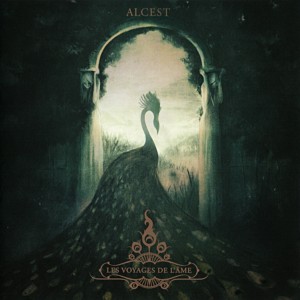 10. Alcest – Les Voyages De L’âme:
10. Alcest – Les Voyages De L’âme:
Well I really have no excuses here. I believe at some point or another I’ve taken a pot shot or two at the worshiping of so-called black metal coming out of France. Alcest are one of, if not THE key figure in that musical movement, and though I don’t believe I’ve ever said anything about them directly, they were certainly among the culprits in my mind. The thing is that this album came out really early this year, and a friend of mine who loves these guys was playing them in his car on the way to some show somewhere, and I found myself enjoying it despite myself. I couldn’t remember what album it was when I got home but I figured that he was playing me the newest one — fast forward eleven months later and when I look at my ITunes play count this album has gotten so many spins that I simply couldn’t ignore the fact that I had quietly been enjoying Les Voyages De L’âme way more than I realized (that title by the way translates in to “The Voyages of the Soul”, not “The Lame Voyages” — you were thinking it).
It would serve throughout the year as my soundtrack to writing articles, playing Skyrim, general internet nonsense, and at times in the car as I’d drive to work. Upon thinking about what albums would be on this list, I tried in vain to think of another album that I could have justifiably placed at my ten spot, but the reality is that you can’t lie to yourself. Whereas past Alcest albums failed me and couldn’t keep my attention (might be time for a revisit), this is perhaps the band’s most instantly accessible work to my ears. I won’t go into adjective filled sentences here about what they sound like, you’re not an idiot, you know what this band is about by now just from seeing their name enough. What I will say is that songs like “Autre Temps” and “Faiseurs De Mondes” are undeniable in their beauty and epic majesty. If you like myself had found no truck with Alcest in the past, their latest might be what you were waiting for all along.
The Metal Pigeon’s Best Songs of 2012:
[youtube http://www.youtube.com/watch?v=JrgrEkhudfo?rel=0&w=560&h=315]
1. Anathema – “Untouchable Pt I/II”: The opening duo from the Weather Systems record is one of many high points on a near flawless album. It may be too light and positive for many metal heads, and it is a complete 180 from Anathema’s Peaceville doom days, but they’ve found their footing here and seem comfortable in it. I know I’m squeezing two songs into one spot here, but both parts are inseparable really — a gorgeous pairing that I’ll never tire of.
[youtube http://www.youtube.com/watch?v=E6hzsrqyGPs?rel=0&w=560&h=315]
2. The Darkness – “She’s Just a Girl, Eddie”: I love the Darkness, I have no shame in admitting it. I was thrilled when they came back and finally released new music. I believe that I’m in a small minority when I say that I don’t believe that The Darkness are as have-a-laugh and ironic as most people seem to believe. The mix of Def Leppard/Queen/AC/DC rock n’ roll that these Englishmen crank out can’t be done as well as they do it without there existing some genuine love for the stuff. I believed that back when they first came out, and I believe it now. These guys write well-crafted, lyrically deft, and humorous songs that don’t skimp on the hooks. I grew up listening to pop-rock like Leppard, Bon Jovi, and Europe long before I listened to heavy metal, and a love of straight-up hard rock has never left me. This album cut off their newest, Hotcakes, is an oddly touching paean to their once heart-broken drummer, Eddie, and its a personal highlight off of a fantastic album.
[youtube http://www.youtube.com/watch?v=RbWYtuSaWL0?rel=0&w=560&h=315]
3. Wisdom – “Heaven and Hell”: This rousing singalong by Hungarian trad/power metallers Wisdom can rightfully claim its title as the owners of the second best song named “Heaven and Hell”. It was the highlight off their most recent album Judas, and it boasted a fairly tasteful music video to boot. The draw here aside from the exceptionally catchy hook is new vocalist Gábor Nagy’s unique blend of prime Ozzy, Dio, and slight Hansi Kursch. This is one of those songs that was tailor made for a field of fist pumping maniacs at Wacken — anyone wanna buy me a plane ticket?
[youtube http://www.youtube.com/watch?v=WZMY-YXLa38?rel=0&w=560&h=315]
4. Sabaton – “Carolus Rex”: “I was chosen by heaven/ Say my name when you pray / To the skies — see Carolus rise!” The chorus of the title track of Sabaton’s masterful new album is alone filled with the kind of bombastic, pompous, chest pounding bravado that only heavy metal could deliver (rappers have nothing on Charles XII of Sweden). This song encompasses not only the near genius lunacy of the former ruler of the Swedish Empire, but also the spirit of the new album as a whole. One of their best singles and perhaps the most pounding, adrenaline-inducing song of the year.
[youtube http://www.youtube.com/watch?v=uqRF1JS63Mc?rel=0&w=560&h=315]
5. Kamelot – “Song for Jolee”: One of two emotional high points on the new Silverthorn album, their first with new vocalist Tommy Karevik, Kamelot adds another spectacular ballad to their repertoire. Many might wonder after all the articles I published about Kamelot’s situation this year, why they eluded the top ten albums list, and really there was just too much in the way of competition. Silverthorn was a good album, and a nice start for the band charting a future without the mighty Roy Khan, but it wasn’t great and had some flaws. This song however hinted that they’re possibly only a few albums away from delivering another great one.
[youtube http://www.youtube.com/watch?v=X2QrnT–2mI?rel=0&w=560&h=315]
6. Grand Magus – “The Hunt”: There was a lot to love on these Stockholm lads sixth album, in particular this storming title track. This was an easy album to enjoy right out of the gate but also an easy one to over play and tire of. Grand Magus’ major drawback is that their high points are so high that everything else on offer starts to blend in together and sound the same. Still, I keep some choice songs off this album on my Ipod at all times, and its this track that has me singing loudly out of tune the most.
[youtube http://www.youtube.com/watch?v=MNESu-ChMXY?rel=0&w=560&h=315]
7. Borknagar – “The Earthling”: I love this song, and believe that its more stripped down, metallic attack is the direction that Borknagar should further explore on upcoming releases. It boasts one of the most euphoric and powerful refrains of any Borknagar song to date and in typical Norwegian progressive black metal fashion, it comes towards the end of the song. Its worth the wait, and singer Vintersorg is in prime form using his heavily accented clean vocals to deliver soaring lines that meditate on the relationship between nature and man. Freaking sweet music video too. Nice one guys.
[youtube http://www.youtube.com/watch?v=98-yil0olG8?rel=0&w=560&h=315]
8. Pharaoh – “The Year of the Blizzard”: This is the centerpiece of Pharaoh’s awesome Bury the Light album and in a way a perfect microcosm of everything great about this band. While my initial favorite on the record was “The Spider’s Thread” for its unforgettable fade out refrain, “The Year of the Blizzard” features sparse acoustics, blisteringly frenetic near thrash metal, and gorgeous solos (the best one coming at the 5:15 mark, an emotional, fluid, and elegant guitar solo that bites down to the core of what we love about the epicness of metal). Guitarist Matt Johnsen will in all likelihood go unnoticed by most guitar enthusiast magazines and sites, but he’ll get a major shout out from me —- someone get that guy a trophy.
[youtube http://www.youtube.com/watch?v=Ir_BVxBz5do?rel=0&w=560&h=315]
9. Orden Ogan – “The Things We Believe In”: These German power metallers clearly take major inspiration from the mighty Blind Guardian, which is no bad thing of course, but doesn’t net the points for originality. It doesn’t matter however when you have songs as straight up fun as this one. Their new album, To The End, is chalk full of anthemic choruses and surprisingly some hyper-intense Immortal-like riffing. But its a bit of a mixed bag overall, with some filler here and there, and one ballad that has some seriously cringe worthy lyrics (and I’m a guy who tolerates a lot in that department) despite its good melody. But generally speaking, this is the kind of band you listen to for some good time, singalong, drinking metal. We’ll leave the serious German power metal to the original bards.
[youtube http://www.youtube.com/watch?v=IXhyzGc7_pc?rel=0&w=560&h=315]
10. Asphyx – “Deathhammer”: These guys narrowly missed my top ten albums list this year with their release of the same name, a convincingly brutal assault on the ear drums in that classic Entombed style. This was the best pure death metal album of the year, even topping Grave with their solid Endless Procession of Souls, and it was this song in particular that served as their consideration for nomination. Asphyx are grim traditionalists in every aspect, even down to details such as an insistence on a mud n’ blood production. These songs wouldn’t work half as well if they were recorded with the pristine precision of a band like Nile. Darkthrone’s Dutch death metal cousins then.
 Not surprisingly, nearly all of them placed indie darlings Deafheaven on the top of their lists. I’ll talk about them in a little bit, but first I want to direct everyone’s attention to what I believe was the singular most important piece of metal writing issued in 2013, written by the always great Adrien Begrand (Decibel, Terrorizer, MSN). The introduction to his finalized Best of 2013 feature puts into words my exact sentiments about the state of metal today —- my own thoughts on the subject being often muddled and subject to wild mood swings (ask my co-workers). It’s a great piece and I urge everyone to take a moment and read over it (check out his year end list as well). I don’t always agree with his takes —- for example he listed Therion’s Les Fleurs du Mal as one of 2012’s worst metal releases while it was my album of the year, but he almost always gives me something challenging to think about.
Not surprisingly, nearly all of them placed indie darlings Deafheaven on the top of their lists. I’ll talk about them in a little bit, but first I want to direct everyone’s attention to what I believe was the singular most important piece of metal writing issued in 2013, written by the always great Adrien Begrand (Decibel, Terrorizer, MSN). The introduction to his finalized Best of 2013 feature puts into words my exact sentiments about the state of metal today —- my own thoughts on the subject being often muddled and subject to wild mood swings (ask my co-workers). It’s a great piece and I urge everyone to take a moment and read over it (check out his year end list as well). I don’t always agree with his takes —- for example he listed Therion’s Les Fleurs du Mal as one of 2012’s worst metal releases while it was my album of the year, but he almost always gives me something challenging to think about. My main criticism of the album is directed at the atonal, almost tinny vocals of George Clark —- they don’t work for me and I feel that not only do they detract from the great music going on underneath, but that they are simply uninteresting as an instrument in and of itself. I’m not going to assert that Deafheaven would be better suited with Alcest-like dream-pop vocals ala Neige, because that’s seemingly a non-starter of a take, however I will agree with Adrien when he calls into question the need for harsh, extreme vocals with lyrics like “I watched you lay on a towel in grass that exceeded the height of your legs / I gazed into reflective eyes / I cried against an ocean of light”. That awkward dichotomy is an aspect of the album that makes it easy for the band’s detractors to argue that they utilize black metal styled vocals as a bulwark in order to freely name drop Burzum and associate themselves with the mystery of black metal in an unassailable manner.
My main criticism of the album is directed at the atonal, almost tinny vocals of George Clark —- they don’t work for me and I feel that not only do they detract from the great music going on underneath, but that they are simply uninteresting as an instrument in and of itself. I’m not going to assert that Deafheaven would be better suited with Alcest-like dream-pop vocals ala Neige, because that’s seemingly a non-starter of a take, however I will agree with Adrien when he calls into question the need for harsh, extreme vocals with lyrics like “I watched you lay on a towel in grass that exceeded the height of your legs / I gazed into reflective eyes / I cried against an ocean of light”. That awkward dichotomy is an aspect of the album that makes it easy for the band’s detractors to argue that they utilize black metal styled vocals as a bulwark in order to freely name drop Burzum and associate themselves with the mystery of black metal in an unassailable manner. Alcest’s new album Shelter comes out this week, courting a lot of discussion due to its complete lack of anything resembling metal. Frontman Neige has gone on record saying the shift away from even minimal black metal elements was completely intentional, a by design move prompted by his lack of interest in the style. No matter how much Deafheaven trumpet Burzum as “the blueprint”, their most obvious influence was the French black metal expansions by Alcest. So where do they go from Sunbather? Short of repeating themselves, I’d expect that the next Deafheaven record will shed more than a few metallic elements. To quote Adrien a final time: “Sunbather is a tremendous example of extremity transcending the metal ethos entirely… And what is becoming apparent as bands like Deafheaven widen their musical breadth is that “extreme music” is the true limitless form of music.” If my prediction comes true, metal sites will still discuss future Deafheaven releases as they are Alcest’s Shelter, much like I still wrote about the recent, unabashedly non-metal releases by once doom-metallers Anathema. Ironic that after all the agitation and debate on Deafheaven’s metal cred, we’ll find ourselves unable to cast them out to the indie wolves. Once you’re in, apparently, you’re in for life.
Alcest’s new album Shelter comes out this week, courting a lot of discussion due to its complete lack of anything resembling metal. Frontman Neige has gone on record saying the shift away from even minimal black metal elements was completely intentional, a by design move prompted by his lack of interest in the style. No matter how much Deafheaven trumpet Burzum as “the blueprint”, their most obvious influence was the French black metal expansions by Alcest. So where do they go from Sunbather? Short of repeating themselves, I’d expect that the next Deafheaven record will shed more than a few metallic elements. To quote Adrien a final time: “Sunbather is a tremendous example of extremity transcending the metal ethos entirely… And what is becoming apparent as bands like Deafheaven widen their musical breadth is that “extreme music” is the true limitless form of music.” If my prediction comes true, metal sites will still discuss future Deafheaven releases as they are Alcest’s Shelter, much like I still wrote about the recent, unabashedly non-metal releases by once doom-metallers Anathema. Ironic that after all the agitation and debate on Deafheaven’s metal cred, we’ll find ourselves unable to cast them out to the indie wolves. Once you’re in, apparently, you’re in for life.
 And finally, in the thrilling(!) conclusion, I present The Metal Pigeon’s Best Albums of 2013, the second and final part of my overall best of the year feature (
And finally, in the thrilling(!) conclusion, I present The Metal Pigeon’s Best Albums of 2013, the second and final part of my overall best of the year feature (
 1. Serenity – War of Ages:
1. Serenity – War of Ages: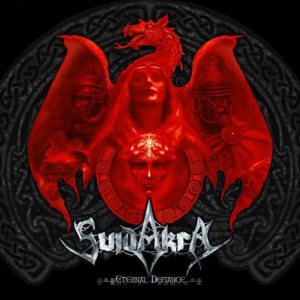 2. Suidakra – Eternal Defiance:
2. Suidakra – Eternal Defiance: 4. Carcass – Surgical Steel:
4. Carcass – Surgical Steel:  5. Falkenbach – Asa:
5. Falkenbach – Asa: 6. Orphaned Land – All Is One:
6. Orphaned Land – All Is One:  7. Rotting Christ – Kata Ton Daimona Eaytoy:
7. Rotting Christ – Kata Ton Daimona Eaytoy: 8. In Solitude – Sister:
8. In Solitude – Sister: 9. October Falls – The Plague of a Coming Age:
9. October Falls – The Plague of a Coming Age:  10. Tribulation – The Formulas of Death:
10. Tribulation – The Formulas of Death: 
 Civil War – The Killer Angels (Despotz Records):
Civil War – The Killer Angels (Despotz Records): Pellek – Ocean of Opportunity (self-released/independent):
Pellek – Ocean of Opportunity (self-released/independent): Gyre – Second Circle (Monolithic Records):
Gyre – Second Circle (Monolithic Records): ViolentorY – Theory of Life (self-released/independent):
ViolentorY – Theory of Life (self-released/independent): Eclectika – Lure of Ephemeral Beauty:
Eclectika – Lure of Ephemeral Beauty: Boneworm – s/t:
Boneworm – s/t: Boil – aXiom:
Boil – aXiom: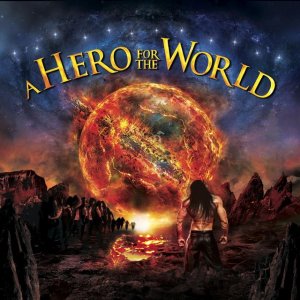 A Hero For the World – s/t:
A Hero For the World – s/t: 1. Therion – Les Fleurs Du Mal:
1. Therion – Les Fleurs Du Mal: 2. Pharaoh – Bury the Light:
2. Pharaoh – Bury the Light: 3. Be’lakor – Of Breath and Bone:
3. Be’lakor – Of Breath and Bone: 4. Sabaton – Carolus Rex:
4. Sabaton – Carolus Rex: 5. Barren Earth – The Devil’s Resolve:
5. Barren Earth – The Devil’s Resolve: 6. Anathema – Weather Systems:
6. Anathema – Weather Systems: 7. Kreator – Phantom Antichrist:
7. Kreator – Phantom Antichrist: 8. Dawnbringer – Into the Lair of the Sun God:
8. Dawnbringer – Into the Lair of the Sun God: 9. Enslaved – RIITIIR:
9. Enslaved – RIITIIR: 10. Alcest – Les Voyages De L’âme:
10. Alcest – Les Voyages De L’âme:

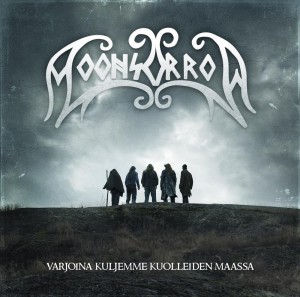 Moonsorrow – Varjoina Kuljemme Kuolleiden Maassa:
Moonsorrow – Varjoina Kuljemme Kuolleiden Maassa: Primordial – Redemption at the Puritan’s Hand:
Primordial – Redemption at the Puritan’s Hand: Hammers of Misfortune – 17th Street:
Hammers of Misfortune – 17th Street: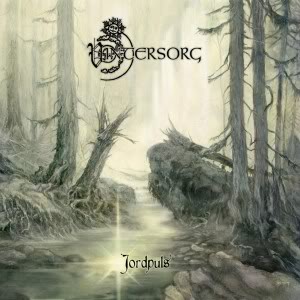 Vintersorg – Jordpuls:
Vintersorg – Jordpuls: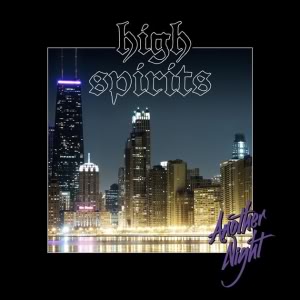 High Spirits – Another Night:
High Spirits – Another Night: It should be all too clear by now that Gotrich and Stosuy do not like traditional or power metal at all. To such a degree that they will willingly ignore popular, widely lauded albums that fall into those styles. To each his own right? Yes. But here’s my problem: these are two very influential writers. Their opinions as mentioned before are parroted around the web, and frankly, that’s where a lot of this type of discussion takes place. What concerns me is that these lists are being trotted out for readers and listeners not already familiar with metal in general. What Gotrich and Stosuy present to these types of audiences is a mere sliver of the many styles of metal that are actually available out there. An NPR listener might actually be capable of being interested in metal that is delivered with a clean, melodic vocalist, or be able to enjoy a record that isn’t washed out in synths and shoegaze influences (cheap shot I know). There are plenty of bands who put out quality releases that this hypothetical person could enjoy, but they might never know about them.
It should be all too clear by now that Gotrich and Stosuy do not like traditional or power metal at all. To such a degree that they will willingly ignore popular, widely lauded albums that fall into those styles. To each his own right? Yes. But here’s my problem: these are two very influential writers. Their opinions as mentioned before are parroted around the web, and frankly, that’s where a lot of this type of discussion takes place. What concerns me is that these lists are being trotted out for readers and listeners not already familiar with metal in general. What Gotrich and Stosuy present to these types of audiences is a mere sliver of the many styles of metal that are actually available out there. An NPR listener might actually be capable of being interested in metal that is delivered with a clean, melodic vocalist, or be able to enjoy a record that isn’t washed out in synths and shoegaze influences (cheap shot I know). There are plenty of bands who put out quality releases that this hypothetical person could enjoy, but they might never know about them.